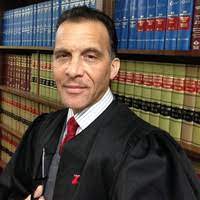By Tony Jones
A frightening fact emerged from the 3rd Annual Moms (Moms of Murdered Sons) and POYA (Parents of Young Angels) Memorial Brunch at the Piccadilly Cafeteria on Poplar, Saturday, July 30th.
Co-sponsored by state representatives Barbara Cooper (D-86) and G.A. Hardaway (D-93), timed perfectly to mark the last day of early voting, concluding at 4 p.m. that afternoon, the personal stories of the attendees created a point-by-point breakdown of what is wrong with Shelby County’s legal system and the importance of the 2022 election which could potentially bring real change to it.
A key factor that made their stories more compelling is the fact it was not a jaw-jacking millennial stunt protest. The dozen-plus voices in the room were matured black citizens whose opinions represented the growing segment of our neighborhoods suffering from the thuggishness that has driven the crime rate up 30 percent in the past year.
As a matter of fact, when District Attorney candidate Steve Mulroy came by to meet them, he had to remind them that constitutional safeguards have to be applied universally. But to his credit, after pulling off the planned Souls To The Polls route, instead of making a flash and dash agenda pitch he stayed and gave them the floor.
What emerged from the individual comments was the observation that Mulroy’s bid to unseat District Attorney Amy Weirich has dominated news coverage, but if Election 2022 is going to bring any real improvement to the justice system the black community should be storming the polls to address the Juvenile Court Judge race between Judge Tarik Sugarmon and incumbent Judge Dan H. Michael.
Sugarmon challenges that visible changes such as a new $28 million detention center under construction on Getwell Road and potentially revamping the court’s downtown headquarters do not address the core of the problem.
He said, “We’ve had systemic problems with this court that have gone on for years. Over the 60 years, we’ve had three judges. Turner served for 40 years. He wasn’t a licensed attorney. He had a law degree but under current rules he would not have been able to sit as a judge. But they made legislative adjustments to allow him to appoint referees in order for him to be allowed to serve. My father, Russell B. Sugarmon Jr. was the first African American referee to serve under Turner. After him he chose Curtis S. Person Jr., and then the current judge, (Dan H. Michael), but it’s the same mindset. Our juvenile system has gone from being one that was more restorative for children to being one that is more punitive in nature.”
Sugarmon says it is time to explore adding a second judge again. A prior attempt supported by the County Commission. As a commissioner at the time, Mulroy supported the bid. Person sued, the proposed change shot down by the State Court of Appeals, and subsequently denied review by the state Supreme Court.
“They’ve changed the name to magistrate, but it’s the same concept. There are 16. They’re hand picked by the judge, so they’re responsive to him, not the citizens. It’s not the first one to come up with the idea. It was in the original county charter but Turner resisted having a second judgeship appointed. In most instances, magistrates are appointed by the legislative body, but because Turner needed to appoint his own referees, that’s too much power in one person. This court handles more cases than any other in the state.”
Stating that demographics plays a major role at juvenile court, Michaels commented in The Commercial Appeal that he wants, “the public to see that we save more lives than we lose, the we provide for more families than they think we do.” And dealing with violent young offenders is a harrowing, but necessary experience. “Until you’ve sat on my bench and in my robe…I will tell you, the rule 208 docket is the hardest in the building.”
Following his appearance at the brunch, D. A. candidate Mulroy was asked the potentially unfair question that if change will ever be made at juvenile court, with a democratic president, a democratic congressman, all these black judges on the judicial ballot, why isn’t there constant pressure being put on the Department of Justice to assure that juvenile court is moving fast enough to change?
“No, it’s a fair question,” he replied. “The D.A. works very close with juvenile court. I think we need to make the request that the D.O.J. come back in and I think the Biden administration would agree to it.”



